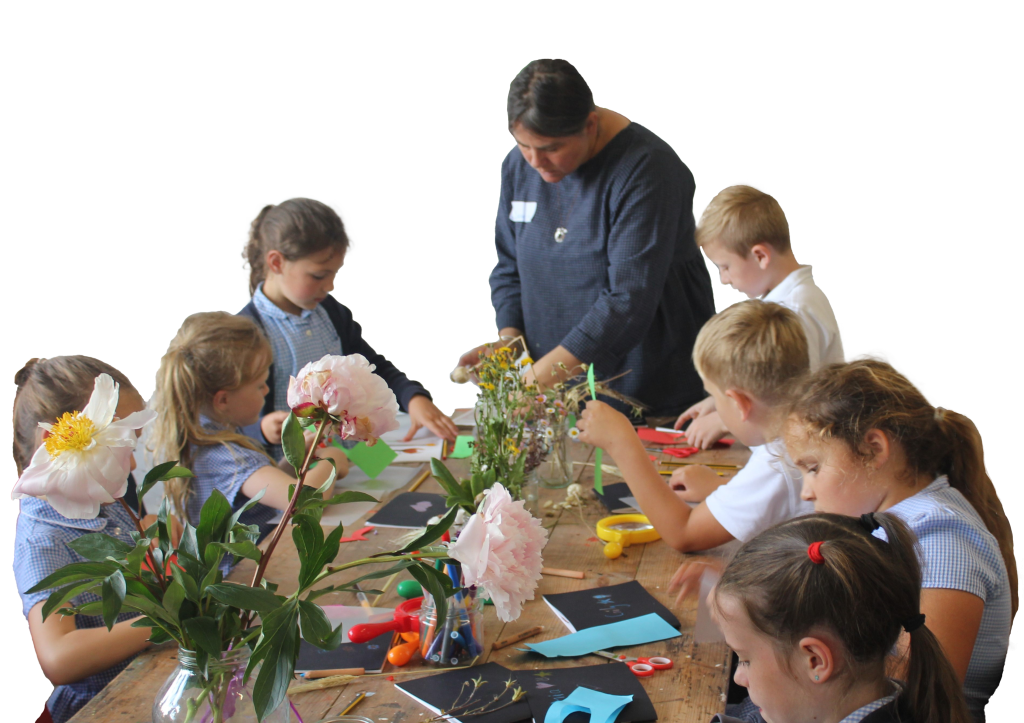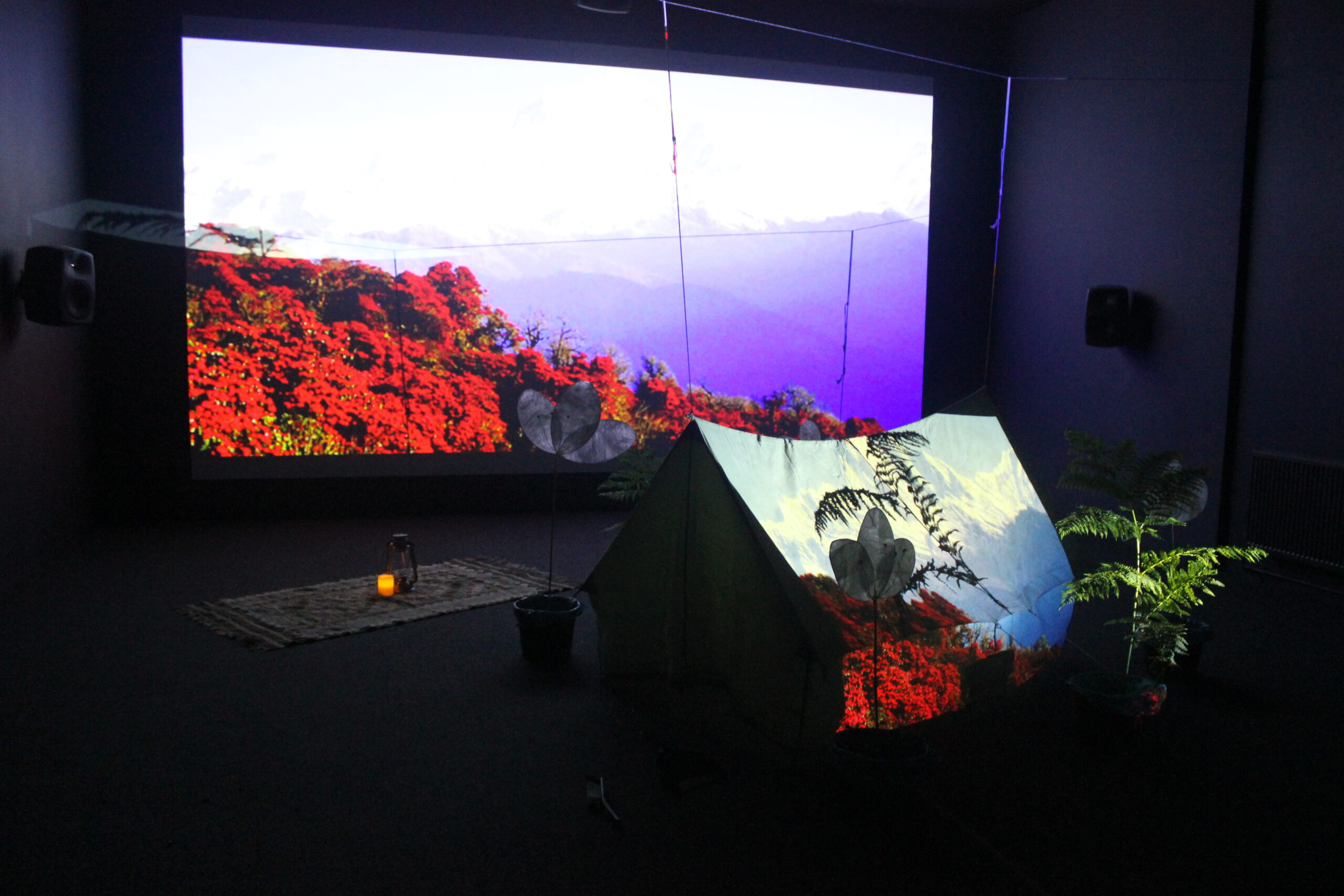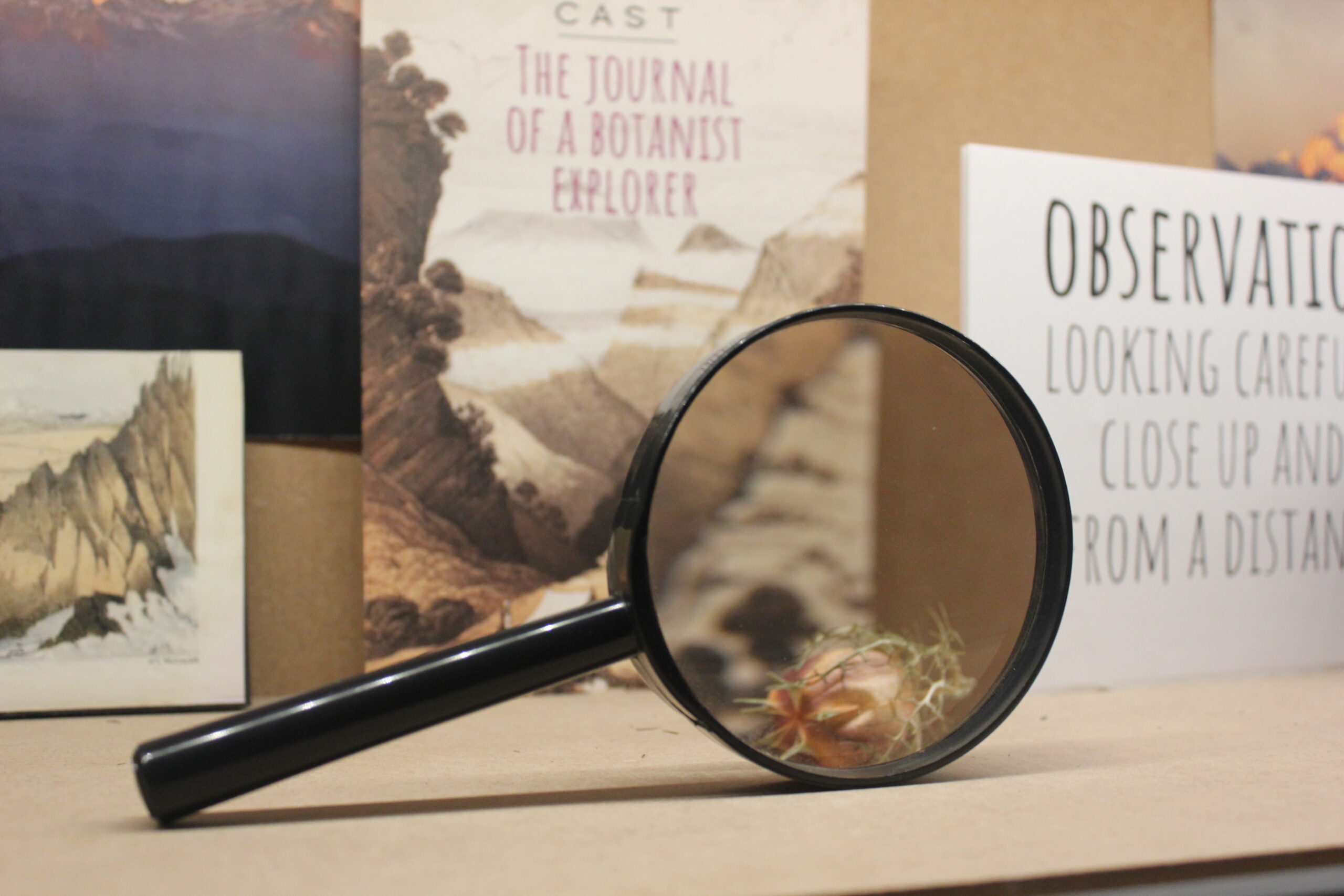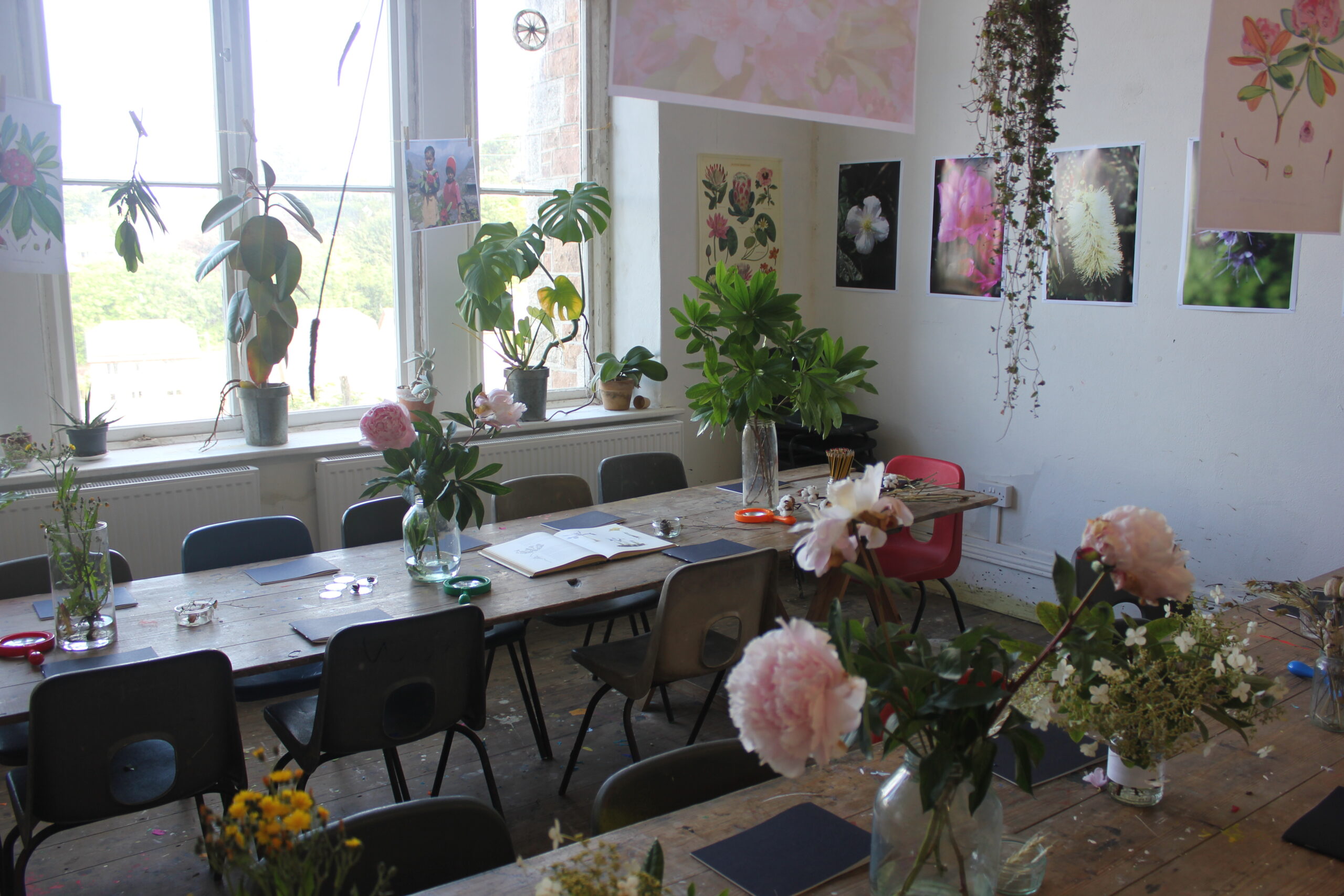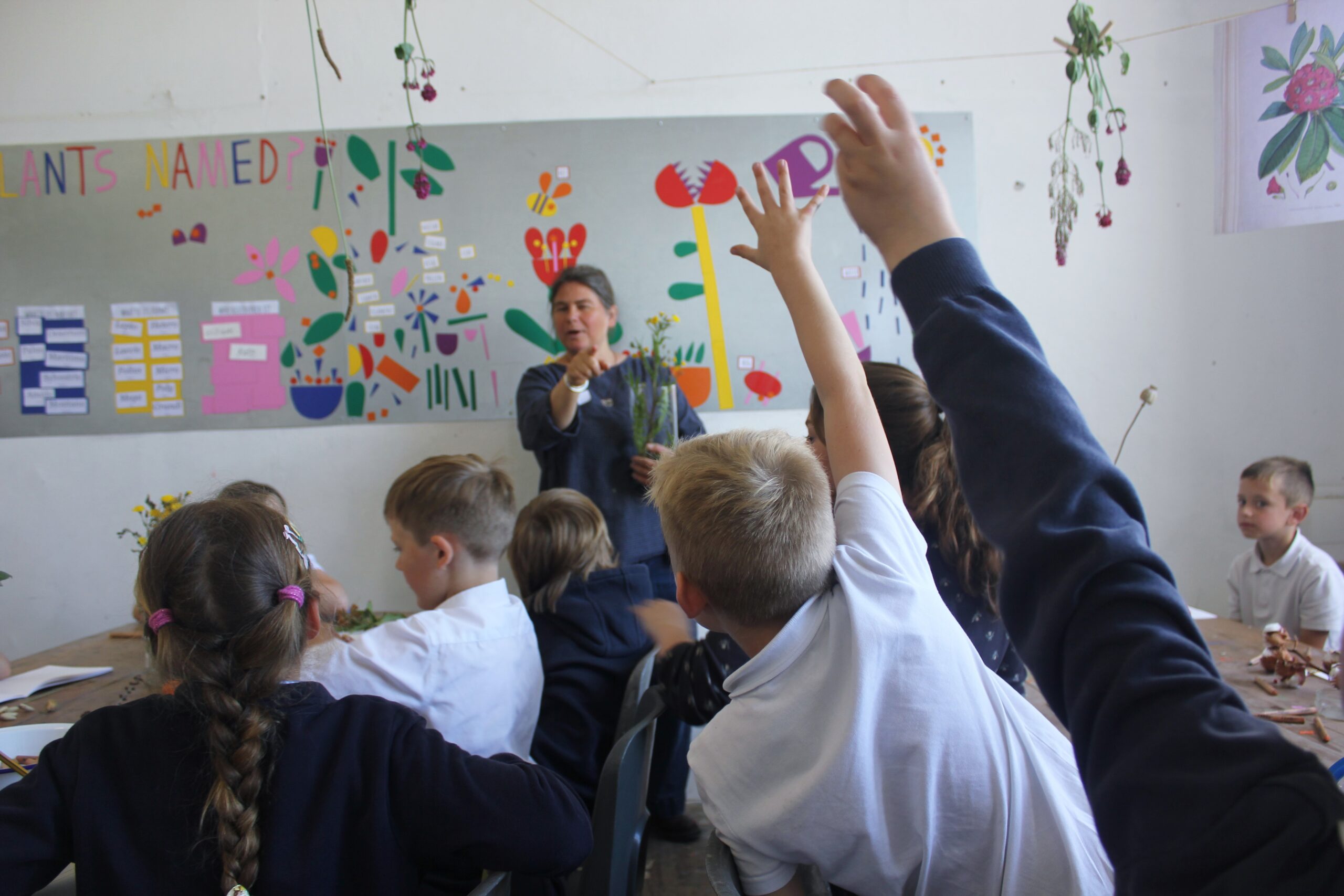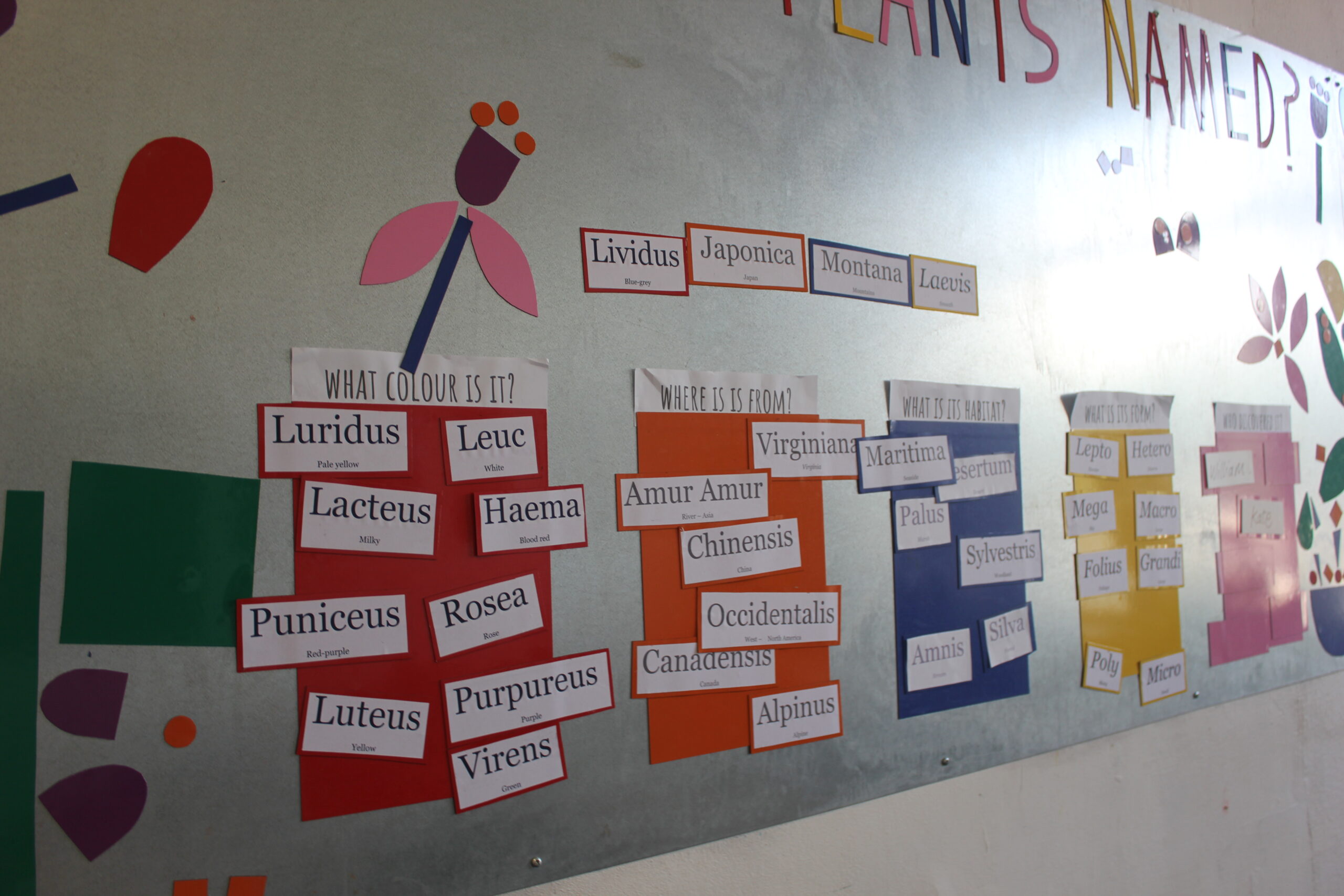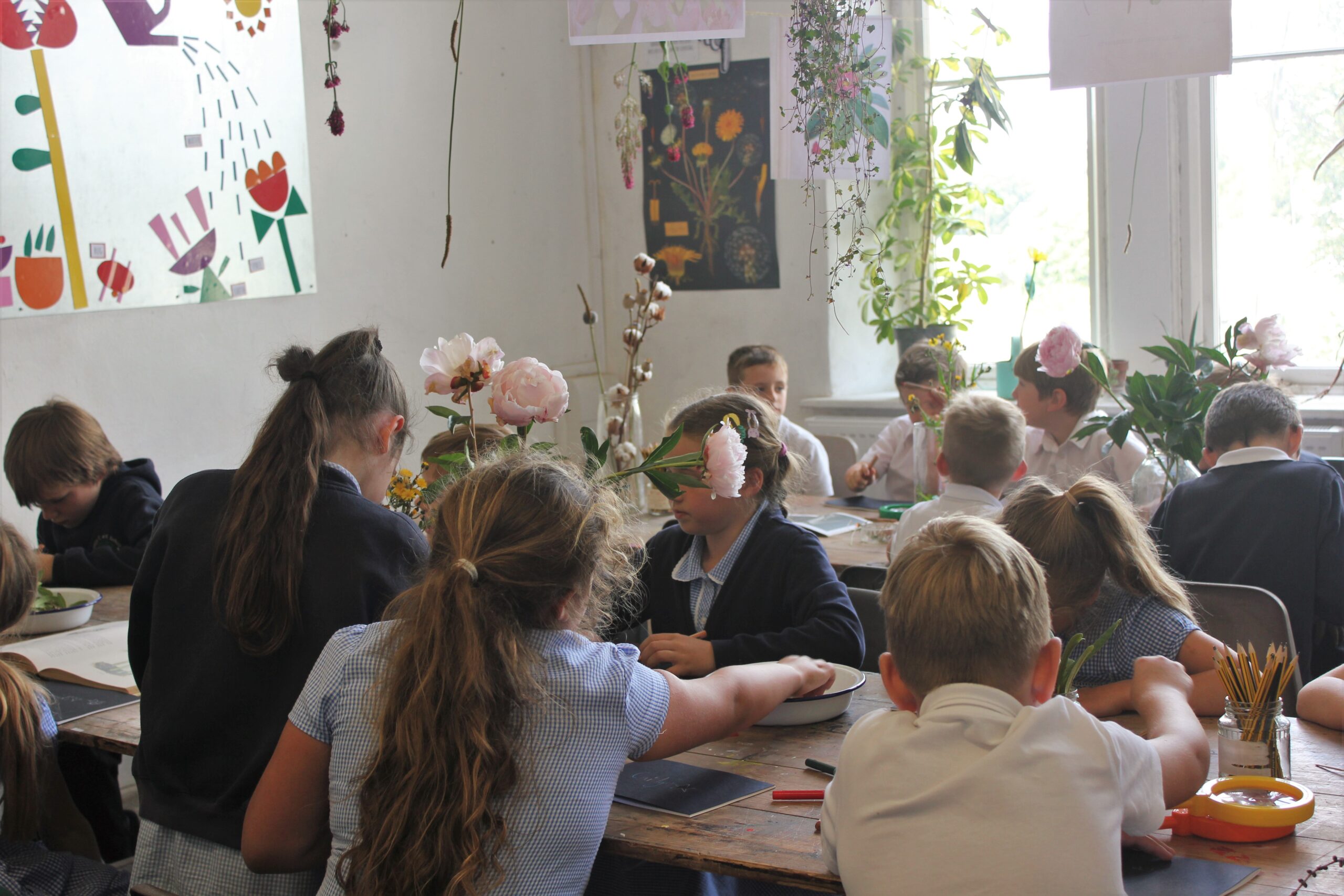In June 2019 a pilot programme of ‘Art Lab’ sessions explored the life of The (Surprisingly) Adventurous Rhododendron from the perspective of Victorian botanist Joseph Dalton Hooker, whose expeditions to the Himalayan regions of north India and Nepal led to the collection of rhododendron seeds that were later planted in many English gardens, including the great gardens of Cornwall. After the success of this pilot programme, it was offered again in spring 2024.
Each school visit started in CAST’s learning studio, which was transformed into a ‘botanical art laboratory’ with displays of specimens and materials. Activities in the studio included making paper flowers and inventing their Latin names, following the system of classification developed by the Swedish botanist Carolus Linnaeus. The children also made their own slides and examined seeds and discussed how they are distributed by wind, animals and birds.
The school groups then moved into CAST’s black box projection space for a truly immersive experience involving film projections, the sounds of trumpeting elephants, monsoon rains and a growling tiger, excerpts from the journals of Joseph Dalton Hooker and a small explorer’s tent in which they were invited to shelter when the monsoon rains broke.
Back in the art laboratory each child was given their own small book in which to start a journal, with a quill pen and ink. They were invited to draw specimens and to write about their experiences. The children took their books away with them and were encouraged to continue observing, writing and drawing in their journals.
One teacher offered the following feedback about the workshop:
It was a fantastic morning and the children got so much learning and enjoyment from it. It was an excellent launch for our next science topic of plants, but also introduced them to so much more: local history, geography and a range of art techniques. The organisation from start to finish was superb, with great communication from Lucy and her team. Everything was provided for us on our arrival and the children loved having their own special sketchbooks to use and take away with them. I know that many have continued to add to these sketchbooks at home.
I loved how the room looked when we arrived, with so many things set out on the table to explore and look at. The children were immediately hooked and they were so curious to find out what some of the various and unusual plant items were. The gradual progression of art skills over the workshop, expertly guided by Lucy and her team, was perfect and the children really enjoyed using a range of media, exploring how this changed the overall look of their sketches. It was so lovely to sit and watch, seeing their confidence grow. They were all completely focused throughout and enjoyed the sketching session very much.
CAST’s learning programme is supported by the UK Government through the UK Shared Prosperity Fund.
